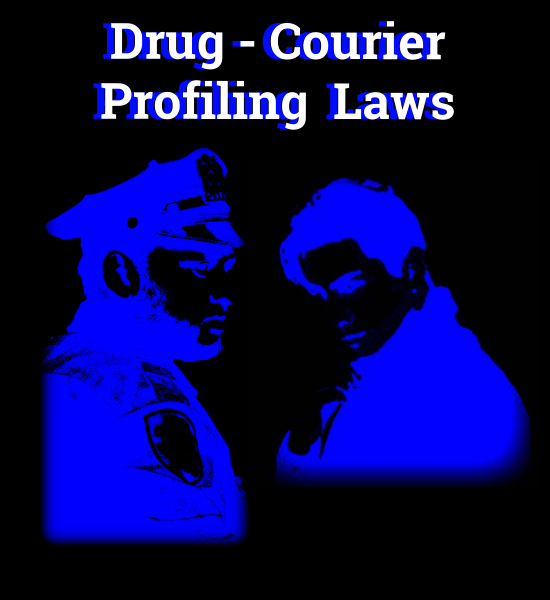A DUI breath or chemical test is considered a protected search under the 4th Amendment. This requires police to have a warrant for probable cause in order to conduct a DUI breath, blood or urine test. This is the case, even if it is administered under Arizona’s Implied Consent Law. Arizona courts have held that if a person was coerced by the officer to take the DUI test then their consent is not voluntary (State of Arizona v. Valenzuela, 2016). Thus, an involuntary consent does not relieve police of the requirement to obtain a warrant.
The Arizona Supreme Court recently issued a written opinion in an Arizona DUI case centered on the issue of whether the defendant’s consent to provide a blood test was voluntary or involuntary. This article outlines the recent Arizona Supreme Court opinion, Q. & A. surrounding Arizona’s Implied Consent Law.
Articles Posted in Arizona Criminal Defense
The U.S. Supreme Court has long held that when the prosecution uses drug courier profiling evidence for the purpose of substantially proving guilt, it is a violation of the defendant’s right to a fair trial.
Drug profiling is when the police officers observe a collection of behaviors typically recognized in law enforcement as being associated drug dealer conduct.
While police can use drug courier profiling evidence to establish reasonable suspicion to stop and investigate a person’s actions, this evidence cannot be used at trial largely to prove guilt. This is because by doing so, the defendant is essentially prosecuted for what others have done instead of what the defendant has done.
This article includes a discussion of the new aggravated factor law pertaining to masks and disguises; what constitutes a mask or disguise; other aggravated and mitigating factors in sentencing; the burden of proof for aggravated factors; examples of aggravated and mitigated factors; sentencing ranges, how penalties are imposed within them; and the role of a criminal defense attorney in the sentencing stage.
Continue reading ›The U.S. Supreme Court previously held that Global Positioning System (GPS) tracking on a driver’s vehicle comprises a search under the 4th amendment. This means that police need a warrant to conduct GPS tracking on a vehicle owned or driven by a suspect when the vehicle is legally in their possession. Earlier this year, the…
Continue reading ›Arizona jails and prisons have measures in place assure no criminal activity in progress in communications. These procedures enable officials to screen mail, and record telephone calls involving the suspect. The content of mail or phone calls can be used prosecute pending or future criminal charges. This article includes three things to keep in mind to help you avoid self-incrimination; How to invoke your rights; Aggravated Assault Penalties in Arizona; and How to resolve your criminal charges.
Continue reading ›The Arizona Supreme Court recently ruled that enhanced sentencing does not apply if the victim is fictitious.
Under Arizona’s Dangerous Crimes against Children law (DCAC), a person convicted of a sexual crime against a child is subject to enhanced sentencing. These sentencing guidelines are harsh and designed to provide greater punishments. Dangerous Crimes against Children in Arizona for those offenses described under A.R.S. 13-705 for which calls for enhanced sentencing. It applies when a person 18 years or older is convicted of committing specified offenses against children between ages of 12 to 15 and under, depending on the particular offense listed under the law.
Profiling evidence is sometimes used by the prosecution to help jurors decide on the facts as well as credibility of witnesses.
Profiling expert testimony is not always admissible and is a decision for the court. Consideration is based upon the rules of criminal evidence, and the content of the expert witness’s planned testimony. If improper witness testimony is admitted, it can potentially lead to an unfair guilty verdict.
Arizona Courts may also consider admissibility of “cold” witness testimony in which an expert offers an opinion on general principles without applying them to the facts of a case. This article takes a closer look at the admissibility of “cold” expert testimony and profiling evidence in the prosecution of domestic violence charges..
Challenges for drug trafficking charges can be made on several fronts. Here are three uncommon defenses used in a recent Arizona Court of Appeals case:
1) Batson Challenge (Trial procedure defense)
2) Search was not within scope of consent (Constitutional challenge)
3) Contesting of expert testimony on drug-courier profiling (Evidentiary challenge)
This article also provides a case summary, penalties and criminal defense for drug trafficking charges in Mesa AZ.
Unless specifically outlined by law, carrying a loaded firearm on any school grounds will result in criminal charges under Arizona’s Weapons Misconduct law A.R.S. 13– 3102 (12). Under A.R.S. § 13- 3102 (I) (1) Arizona law provides an exception, to weapons misconduct laws if the firearm within the person’s possession or vehicle was not loaded with ammunition. In this case ammunition was not in the chamber. However, there was ammunition in the magazine which holds the shells for the purpose of feeding the chamber repeatedly.
The defendant argued that the law was unconstitutionally vague because it does not define the word “loaded”, and that some states define it more narrowly.
The Arizona Appeals Court affirmed the decision of the trial court which held that “loaded” includes not only the bullets contained in the firing chamber. Rather, a gun is also considered to be loaded if ammunition is contained within the cylinder, magazine, or clip of a firearm. The court cited a number of case precedents for relied upon by both sides which concluded this holding.
The Appeals Court concluded that a law is not constitutionally vague simply because the State Legislature decided not to define it more technically or narrowly. This article outlines the weapons misconduct at school laws, assault laws that apply; penalties; situations in which guns are permitted on school grounds; and criminal defense for charges.
5 Things You Should Know about Your Rights in a Police Stop and Arrest . In Mesa AZ you cannot be arrested on the basis of a non-criminal traffic violation.
However, that changes if you fail to stop or flee when police signal you to pull over for the matter. Fleeing from police or failure to stop are in violation of criminal unlawful flight laws. The most important thing you can do when you see flashing lights or hear the siren is to pull over safely and promptly. In the least you should slow down and find a way to signal to police that you see them and intend to pull over. Otherwise you could create probable cause for your arrest.
Recently, an Arizona Appeals Court ruled on whether or not a search warrant was required for police to follow a driver into a private driveway for a stop that began on a public road. It held that though a person is not subject to arrest for a civil traffic violation, failure to stop or comply with police does result in creating probable cause for arrest. The following case summary provides the Appeals Court’s majority opinion and basis for their decision to allow the evidence which reaffirmed the conviction. This article also provides a recent Arizona case ruling, and a list of 5 important questions and answers related to your rights at a stop, and defending subsequent criminal charges.















